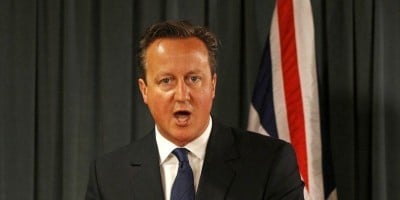
After the outbreak of world war in 1914, many new rules and regulations came to Britain. This is of course understandable given the scale of national security. The most important of these was called the Defence of the Realm Act (DORA), passed on 8 August 1914 which was designed ‘for securing public safety’.
DORA gave the government the power to prosecute anybody whose actions were deemed to ‘jeopardise the success of the operations of His Majesty’s forces or to assist the enemy’. By its nature, this gave the act a very wide interpretation. It regulated virtually every aspect of the British home front and was expanded as the war went on.
At the time, people were banned from loitering near bridges or tunnels or from lighting a bonfire. Whistling in a cab was made illegal in case it was mistaken for an air raid warning. Pub opening hours were reduced as was the alcohol content in drinks.
Some regulations were never changed after the war. Clocks were moved forward to gain maximum working hours from the workforce and drug possession of opium and cocaine became a criminal offence unless you were a professional such as a doctor.
Then came the propaganda machine. Press censorship was introduced, severely limiting the reporting of war news. Warrantless domestic surveillance started with mass inspection of private correspondence through the mail and telegrams. DORA put restrictions on the movement of foreign nationals from enemy countries. The freedom of such ‘aliens’ was severely restricted, with many interned.
Contentious objectors to conscription led to local tribunals being set up especially to identify those unwilling to fight. This was the targeting of opponents to war and usually ended in service on the front-line or jail.
Many objectors sent to prison were treated poorly with the first month in solitary confinement, given just bread and water and were more often than not re-arrested once released for ‘desertion’, court-martialled and returned to prison. Some were given a regiment, taken to France, away from home soil and then shot. For some, years in prison was endured without access to newspapers, books, calendars and very limited visits. The primary cause of death in prison for these people was psychological more than physical.
Rendition, harsh detention, interrogation, torture of war prisoners and extra-judicial killings were all too common in the backdrop of global conflict. Britain covered up these acts as she was fighting a ‘clean and just war’.
Habeas Corpus was suspended along with other restrictions on free speech and public meetings. Internment – detention without charge was employed in World War I and II.
Wartime domestic propaganda made it all too plain that a person was either with the national effort or against it and persecution of war critics became commonplace.
Civil liberties are basic rights and freedoms granted to citizens through national common or statute law. They include freedom of speech, freedom of movement, freedom from arbitrary arrest, freedom of assembly, freedom of association and freedom of religious worship.
Such rights and freedoms form the basis of a democratic society and are often denied to those living in a dictatorship, or as we have just seen, in emergency situations such as national security but only when your country is being invaded by a foreign force.
So why is it that our government seemingly preparing us for a large scale war with continual erosions of civil liberties that require the components and measures of a dictatorial leadership such as in an emergency situation.
Without being threatened by an invading force of any type, the British government, along with its Western counterparts, particularly America and France are imposing warrantless mass surveillance, deploying the illegal strategies of kidnappings and rendition, complicity in torture and for the first time since the World War, extra-judicial murder of its own citizens. We have also recently witnessed the beginnings of identification of war critics with David Cameron’s recent and extreme ‘terrorist sympathisers‘ accusations in parliament.
Today, you can be arrested without charge and held by police for 28 days in a cell. This capability by government was not legally available for any more than 24 hours until recent years.
Control Orders passed in the Terrorism Act 2006 meant anybody ‘suspected’ of terrorist related activities (a broad definition at best) by the Home Secretary, without any kind of trial, can be electronically tagged and monitored, restricted from using the internet or making phone calls and have a passport revoked and be under a duty to report to the police. They are effectively interned.
Never in the UK have we had secret courts. Today we do. If a citizen decides to take the British government or any of its officials to court in cases of torture, rendition, or a whole host of other reasons, many nothing to do with terrorism or acts of war, the government now has the ability to present evidence to the judge which the claimant, defendant, media and public will never be privy to. In addition, the citizen in this case may well be subject to illegal deep surveillance to subvert justice in the governments favour as admitted by the security services as “routine interception of legally privileged communications.”
The Public Order Act seeks only to undermine the right to peaceful protest. The Serious and Organised Crime and Police Act grants a number of powers to police aimed at protesters. The result is that it is now impossible to protest outside Britain’s parliament without being arrested.
Agent provocateurs are routinely deployed by the authorities to cause trouble at protest meetings to generate a violent reaction that causes unjustified arrests.
The Regulation of Investigatory Powers Act 2000 allowed the government full surveillance powers over all kinds of communications and population control measures such as using the Act to arrest people for parking offences, non-payment of BBC TV licence, dog fouling and even under-age use of sun-beds. Tens of thousands of warrants designed to catch terrorists have been issued for petty offences.
The streets of Britain is now home to 4 million CCTV cameras watching the every move of its citizens, more than in China. Arrests as a direct result of CCTV footage amounts to less than one per day.
Political dissent is being met with arrest as seen when a woman was apprehended for protesting against cuts to disability benefits. For that, she was convicted, received a criminal record and a fine under Public Order laws for shouting ‘Cameron has blood on his hands’ while the Prime Minister turned on the Christmas lights in her town.
The government is acting as though a foreign invading force is marching towards our shores. There are now countless reports in the alternative media of threats to Britain’s democracy whilst the mainstream press regurgitates political propaganda on a scale not seen since the illegal invasion of Iraq by Blair and Bush. As democratic audit has already warned, Britain’s democracy is in “long-term terminal decline”
There is a battle of supremacy going on in Syria involving the global super-powers. David Cameron has dragged the country into fighting its fourth war in a little over a decade which they now predict will last for years. Russia and China may well be our opponents in the coming fog of war. Ground troops from many nations are heading that way right now.
Turkey has just proved that a global conflict is but one act of stupidity away from catastrophe. Iraq has now asked Russia to expel Turkey’s troops and war planes from its land. Israel has just started bombing Syria, even Germany wants to send its special forces ground troops. What next?
Source Article from http://www.globalresearch.ca/is-britain-being-prepared-for-a-world-war/5494181
Related posts:
Views: 0
 RSS Feed
RSS Feed

















 December 7th, 2015
December 7th, 2015  Awake Goy
Awake Goy 
 Posted in
Posted in  Tags:
Tags: 
















